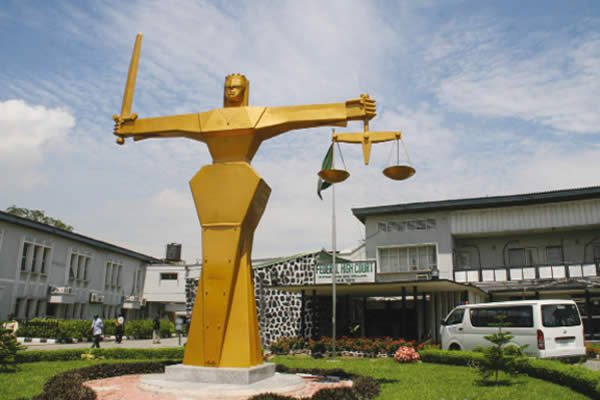FROM the days of yore, the judiciary has played a formidable role in the social engineering of the society contributing immensely in dispute resolutions, upholding of the rule of law, stability, peace, order and good government of mankind.
This vital role of the judiciary has also received eloquent expression in modern democracy as any society today that lays claims to democratic norms and values has no option than to ensure a vibrant, efficient and effective judiciary as an arm of the government for the overall wellbeing of humanity.
In Nigeria, like other nations subscribing to the tenets of democracy, the judiciary is tasked with bringing to reality the time-honoured role of lubricating the machinery of government.
A cursory look at the Judiciary, the rule of law and the extent this vital arm of government has carried out its function reveals a mix grill of performance, amidst expectations of the people.
While some believe that the Judiciary to some extent has performed reasonably well in dispute resolutions, others feel the reverse is the case.
Critics of the Judiciary are quick to point to court decisions favoring some powerful elements in the society, particularly electoral matters. On the contrary, those showering kudos to the judiciary believe that given the circumstances the Nigerian judiciary finds itself, it has performed well.
Without mincing words, the judiciary in Nigeria operates in a peculiar circumstance laced with executive lawlessness, unmitigated culture of impunity, corruption and other social vices.
One does not need a pair of binoculars to clearly see how executive lawlessness, desecration and denigration of the temple of justice and total disregard for rule of law by some powerful but unscrupulous elements have subjected this arm of government to needless asphyxia and near state of comatose.
It is in this country that a political ruler not only unabashedly told the world that the rule of law is and must remain subservient to national interest but went ahead to disregard and disobey court order with such temerity that could only be reserved for the cave man community.
As if not enough a Chief Justice of Nigeria was humiliated out of office in circumstances that raise many questions unanswered.
What about the commando style invasion of some justices of the superior courts of records at very ungodly hours by overzealous security operatives doing the biddings of some power- drunk entities and meddlesome interlopers?
Added to these is the case of poor conditions of work and shortage of manpower in the judicial sector as the judicial division and judicial officers fall below the quantum needed to meet the needs of the citizens. All these do not make room for effective judicial system needed for modern democratic setting.
Be that as it may, the history of the judiciary Nigeria since the return to democracy is not a tale of woes or lamentations.
On the contrary, there are clear gains and improvements recorded in the sector. One of such gains is the coming on stream of the Administration of Criminal Justice Act (ACJA) 2015 and the states equivalent of the law.
This piece of legislation has helped tremendously in quick dispensation of criminal justice, giving criminal justice a human face and removing some bottlenecks in trial and case management.
More judicial divisions have also been created in various parts of the country as part of measures to fast track justice delivery system and reduce the burden on the judicial officers with the employment of more officers to man the newly created divisions
In Delta State, for instance, the Asaba divisions of the Court of Appeal and the Federal High Court, respectively, have gone a long way in expanding the frontiers of justice delivery in the state in particular and the country generally.
Not only that, other courts like the magistrates, customary and sharia courts have also added to the avenues for justice delivery system in the country,
Expanding the tenure of justices of our apex courts from 65 to 70 has also provided more opportunity for the beneficiaries to bring to bear their invaluable experience to service of the nation.
In all, the judiciary has performed well but there is still the need to do better. The society should also embrace the culture of respect for the rule of the law as a way of helping the judiciary to make more meaningful impact on the society.


